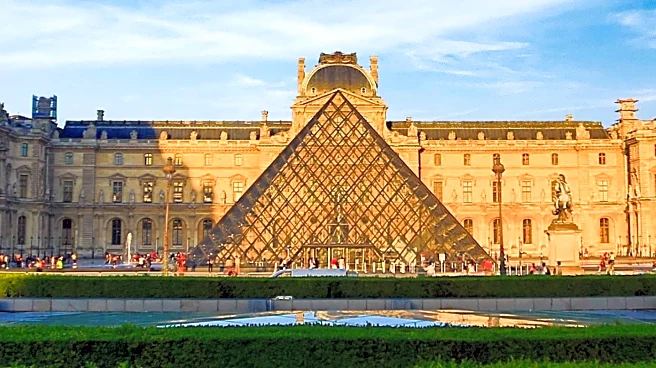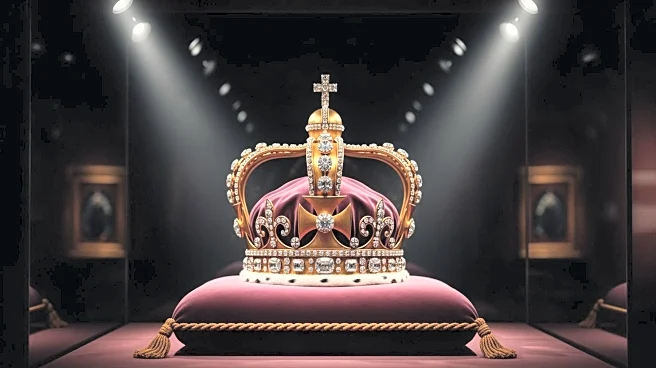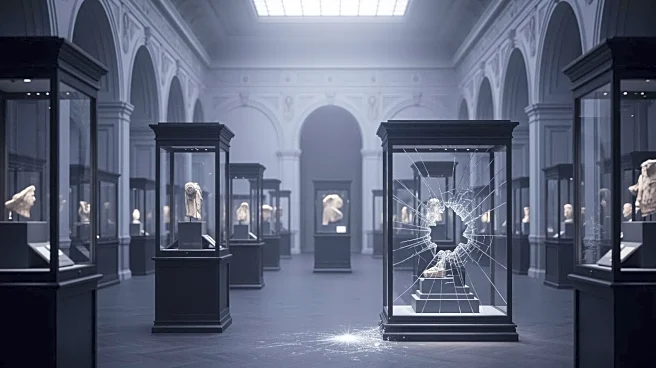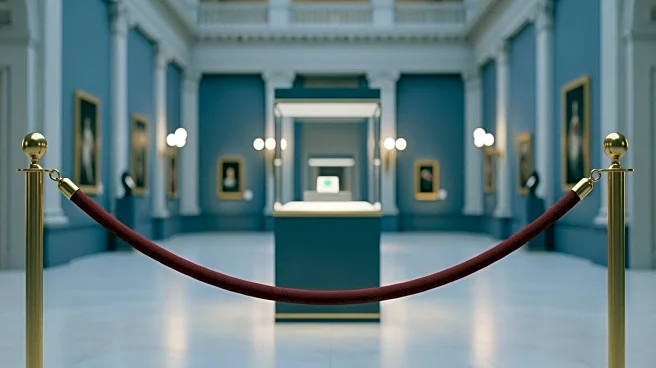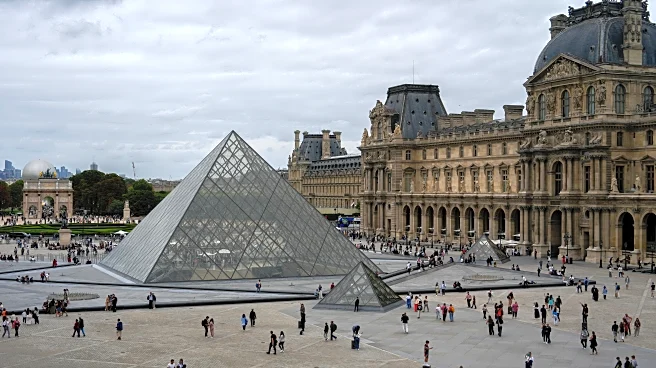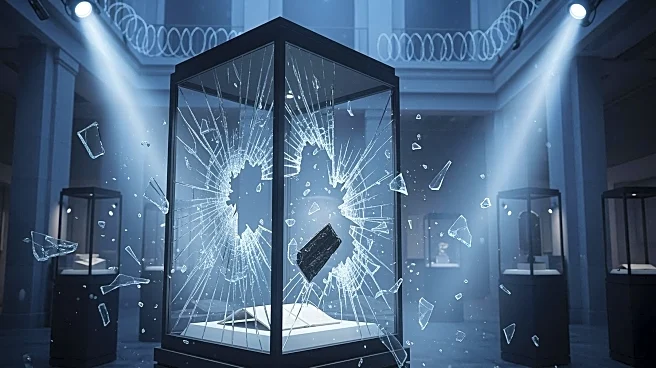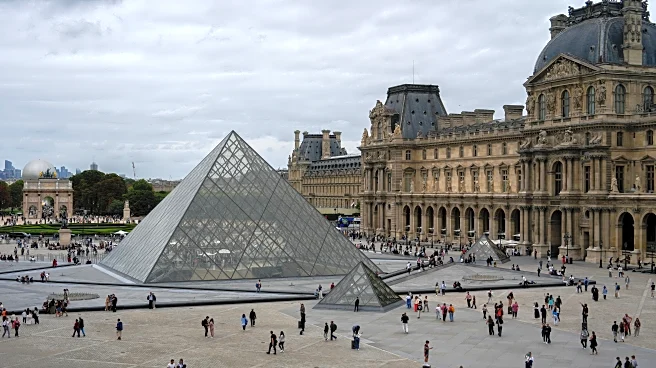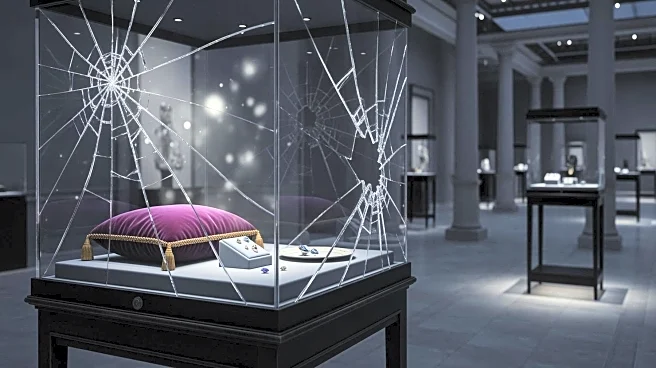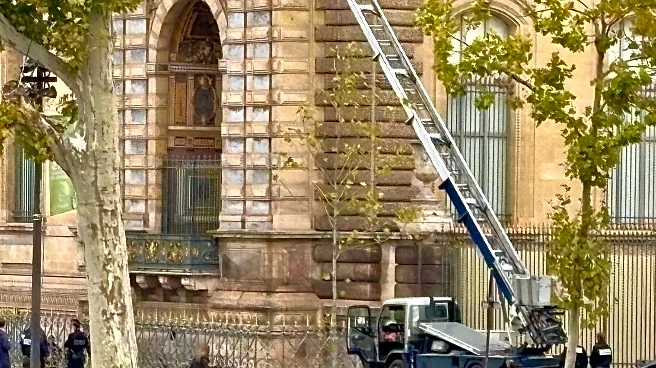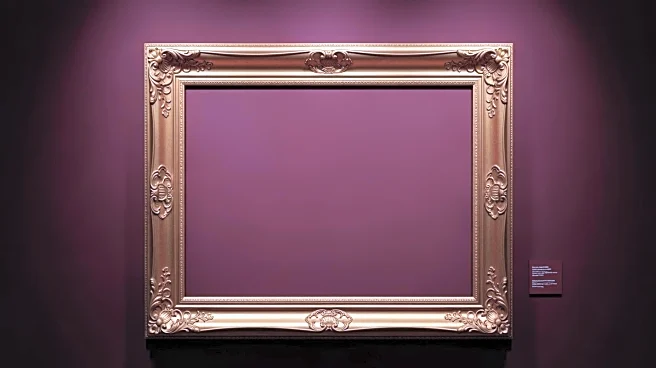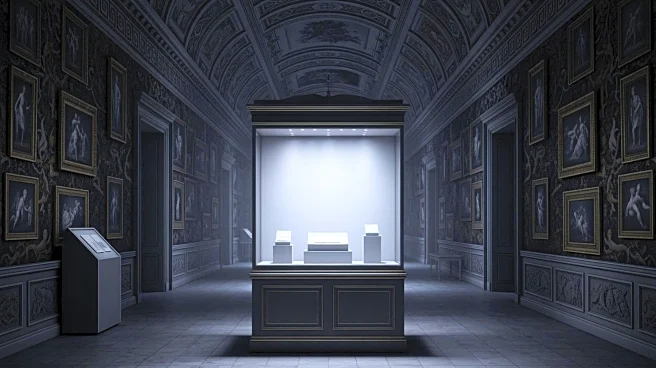What's Happening?
The Louvre Museum in Paris was forced to close after thieves executed a major heist, stealing priceless jewels using a basket lift. According to France's Interior Minister Laurent Nuñez, the thieves entered
the museum from the outside, utilizing a basket lift to access the building. The operation, which lasted only seven minutes, involved cutting panes with a disc cutter. The Louvre, the world's most visited museum, reported that the thieves stole nine pieces from the jewelry collection of Napoleon and the Empress, including a crown believed to be Empress Eugénie's, which was later found broken outside the museum. The heist took place in the Apollo Gallery, known for displaying the French Crown Jewels. The museum has a history of thefts, including the famous 1911 theft of the Mona Lisa.
Why It's Important?
This theft highlights significant security vulnerabilities at one of the world's most renowned cultural institutions. The incident could lead to increased scrutiny and potential changes in security protocols at museums globally. The stolen jewels, being of inestimable value, represent a cultural and historical loss, impacting both the museum's collection and France's national heritage. The theft may also influence public perception of safety at major tourist attractions, potentially affecting visitor numbers. Additionally, the incident underscores ongoing challenges in protecting cultural artifacts, which could prompt discussions on international cooperation for artifact recovery and security enhancements.
What's Next?
The Louvre's closure for 'exceptional reasons' suggests an ongoing investigation and potential security overhaul. French authorities are likely to intensify efforts to recover the stolen items and apprehend the perpetrators. The museum may implement stricter security measures, possibly involving technological upgrades or increased personnel. The incident could also lead to broader discussions within the museum community about safeguarding cultural heritage. Stakeholders, including government officials and cultural organizations, may advocate for enhanced international collaboration to prevent similar incidents and ensure the protection of valuable artifacts.
Beyond the Headlines
The theft raises ethical and legal questions about the protection and restitution of cultural property. The Louvre's history of looted artifacts from the Napoleonic era continues to spark debates on restitution, which may gain renewed attention following this incident. The heist also highlights the ongoing tension between accessibility and security in public cultural spaces, prompting discussions on how to balance public engagement with artifact protection. Long-term, this event could influence museum policies worldwide, encouraging a reevaluation of security strategies and international cooperation in cultural heritage preservation.
